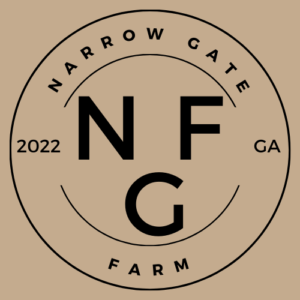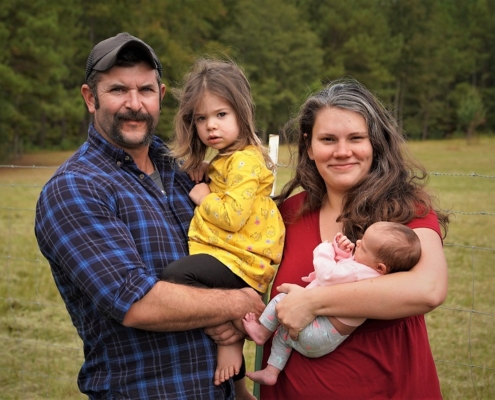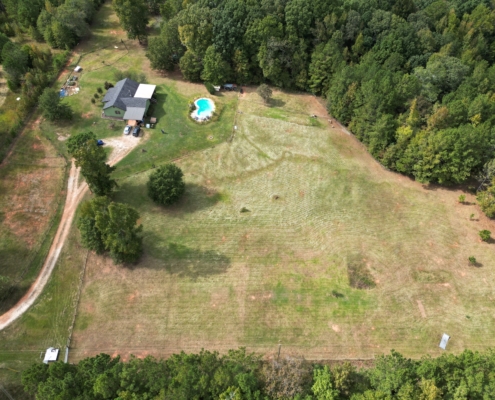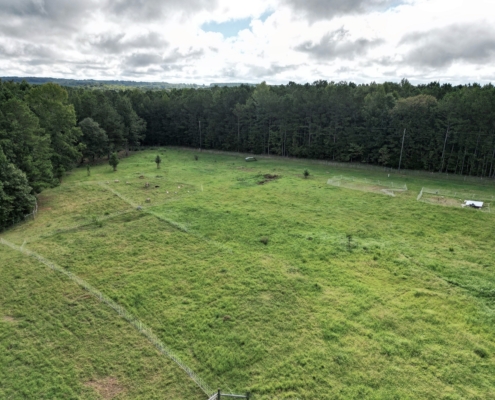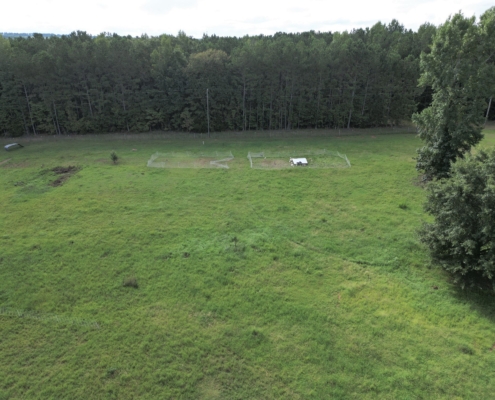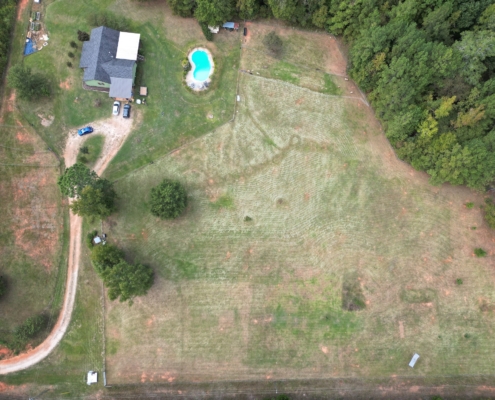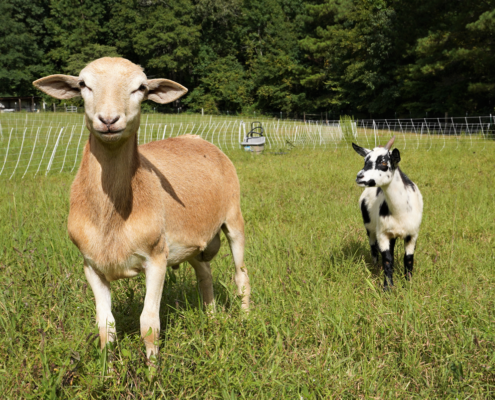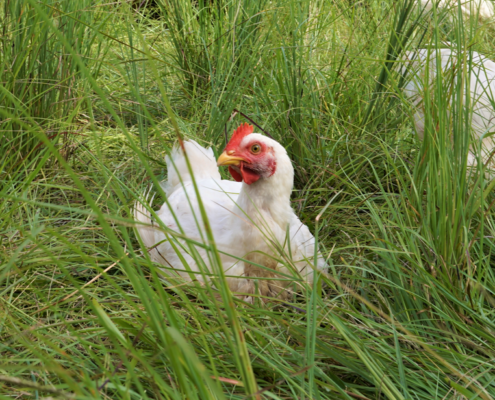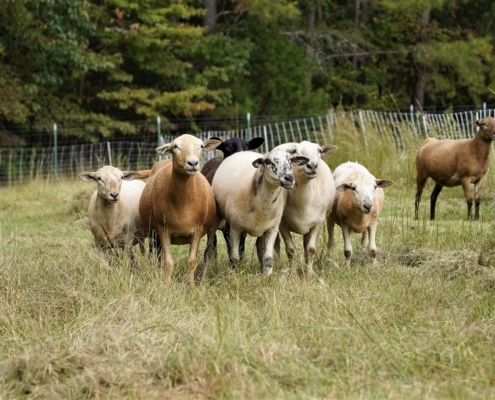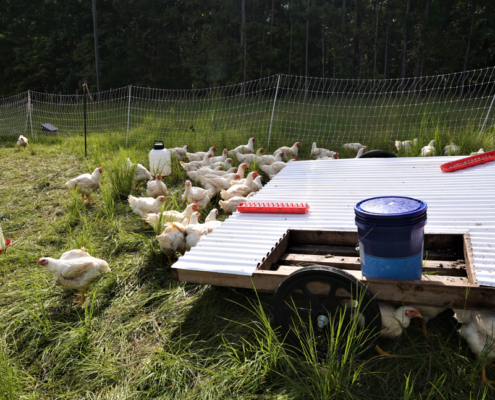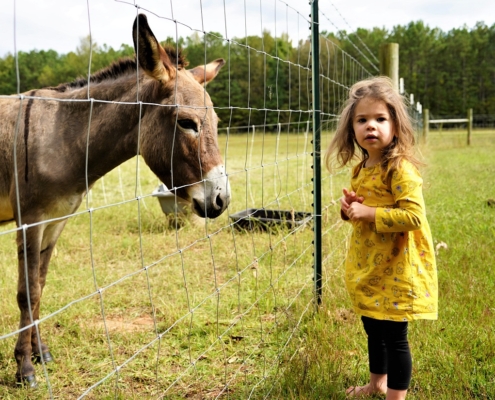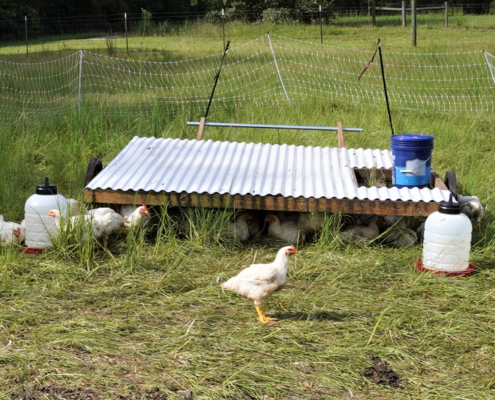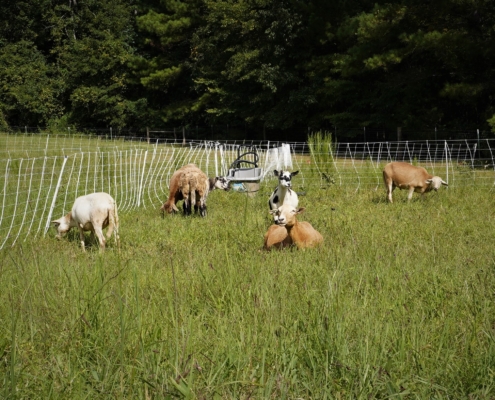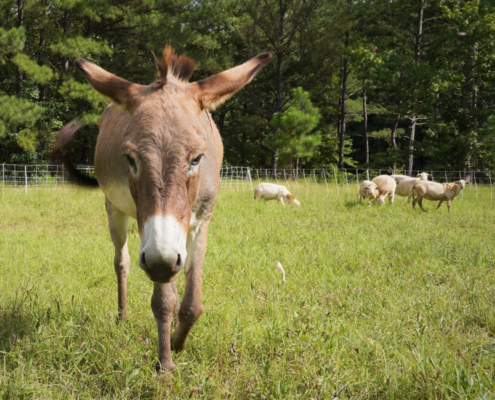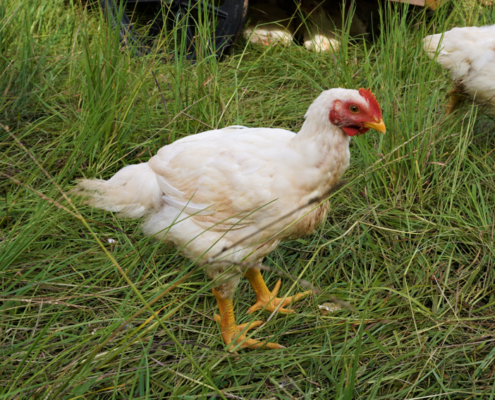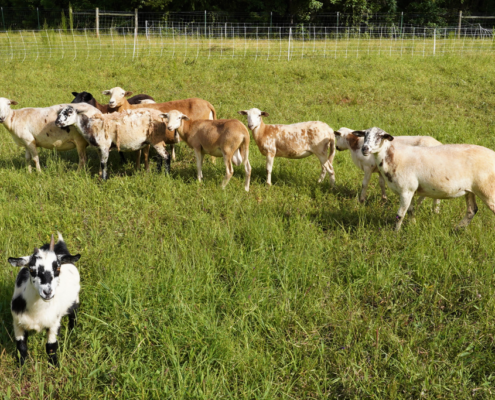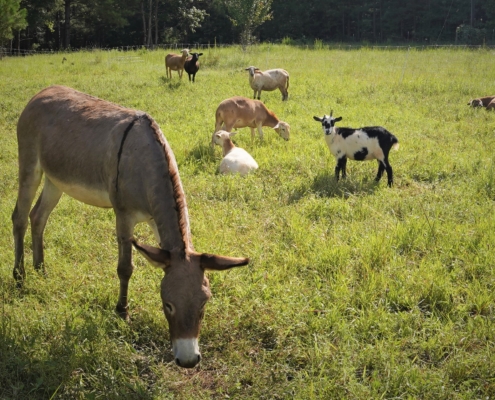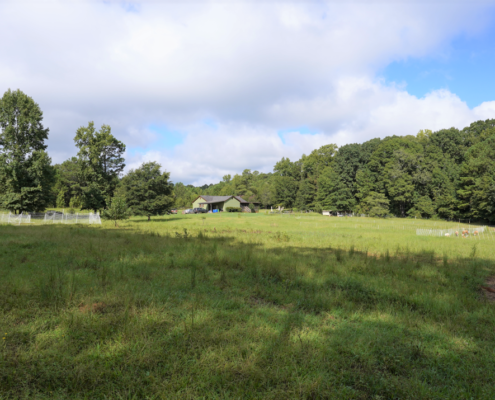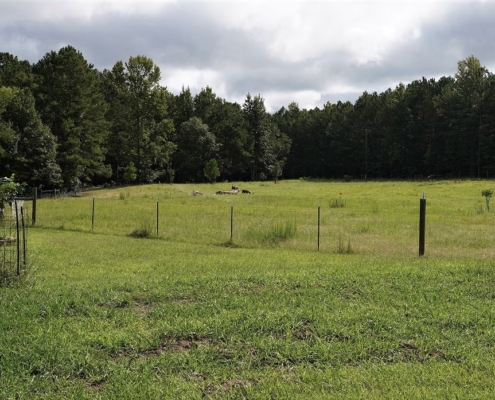Narrow Gate Farm
Welcome to Narrow Gate Farm!
Meet Steven and Adrienne Permar, with their children Elizabeth and Zoe.
Located in Newborn, Jasper County, the Permar family specialize in pasture raised poultry and grass-fed and finished lamb.
Check out the photographs of their farm and get to know Narrow Gate Farm in the Q & A session below!
About the Farm
Established in 2022, Narrow Gate Farm focuses on using regenerative agricultural practices to produce pasture raised poultry and grass-fed and finished lamb. Their mission is to provide the local community with healthy alternatives, compared to the products that are mass produced on the everyday market.
Dedicated to having a positive impact on their small family farm, Steven and Adrienne implement rotational grazing that not only improves soil fertility but allows the soil to retain moisture, protecting it from erosion, and reducing water pollution. These resting periods for the earth also provide grasses and other vegetation the time to grow deeper root systems, which increases the level of nutrients they possess and decreases the parasite load.
Get to know Narrow Gate Farm!
Check out the Q & A session below:
What type of farming do you do? – “We raise grass fed and finished lamb and pasture raised poultry. We use regenerative agriculture practices and rotational grazing in order to have a positive impact on our land.”
How long have you been farming? –“We started our first small flock of sheep in 2017, but the decision to pursue farming as a business was made in 2021.”
Are you a generational farmer? If not, what influenced you to begin farming? – “Adrienne grew up on a small island in Canada, which is well known for sheep production. Her childhood exposure to livestock and experiences in 4-H are what eventually led her down this path. Steven is one generation removed from conventional crop and livestock farmers in Georgia. He was influenced primarily by Joel Salatin and other pioneers of sustainable agriculture who proved that small scale farming in tune with the environment is possible and profitable.”
When is the livestock ready to go for processing? – “Chicken is ready every four weeks between April and October. Lamb is ready once a year in the fall.”
How do you market your livestock? – “We currently market direct to consumers, but we are exploring other avenues as well.”
When is the livestock ready to be sold? – “We try to keep chicken in stock most of the year, lamb is generally only available in the fall to early winter.”
From start to finish, how does the workflow go with raising livestock? –“We get day old chickens delivered from a hatchery in South Georgia. They stay in a temperature-controlled brooder for three to four weeks. Once their feathers are fully developed, they are moved onto pasture. They have a mobile shelter and are inside an electric fence to protect them from predators. The shelter is moved daily onto fresh grass, allowing them to forage as nature intended. They stay on pasture until they are eight weeks old when they are taken to a processor. Their diet is supplemented with non-GMO feed that is produced in Georgia. We breed our sheep in the fall, so the lambs are born in early spring when the grass is really starting to grow. The sheep stay on pasture year-round, and are moved regularly to new sections of pasture. This practice allows the grass a chance to recover after grazing, and evenly distributes manure around the pasture. In the fall we decide which lambs will be harvested and they are taken to a processor. The females will be introduced to a ram this time for the breeding season.”
After the livestock is processed, where does it go? Any local entities? – “Currently all our products go directly to our customers, but we are looking at the possibility of selling at locals Farmers’ Markets and grocery stores.”
How does a typical day on the farm go for you? –“The chickens typically get moved first thing in the morning. During the move their feed supplement gets refilled along with their water. While we are moving the chickens, we will take a look at the grass the sheep are on and determine where their next paddock will be. The sheep are generally moved in the early afternoon. After the sheep are moved, we have time for any ongoing projects or repairs that need to be completed.”
What is your favorite thing about being a farmer? – “Every day is different, and brings new challenges. We also really enjoy producing healthy and delicious food.”
What can the community do to support farmers like you? – “Financial support from buying our products is always welcomed, but more important is helping us get the word out that there is a local alternative to mass produced, factory farmed food.”
What would you like Morgan County (and surrounding communities) to know about your farming operation? – “We are proud of our farming practices and their positive impact on the environment, but we also understand that many people might find discussions about agricultural practices boring. But it is important for us to stress the point that these types of farming methods truly do produce a healthier food, and the impacts of supporting the local food system can be profound.”


